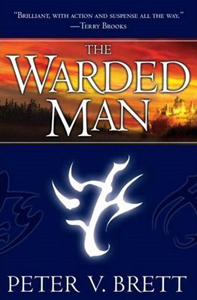 In one of the most ill-advised marketing moves ever, the US based SciFi Channel is rebranding itself as SyFy.
In one of the most ill-advised marketing moves ever, the US based SciFi Channel is rebranding itself as SyFy.
From TV Week:
In some universe, the name “Syfy” is less geeky than the name “Sci Fi.” Dave Howe, president of the Sci Fi Channel, is betting it’s this one.
To that end, the 16-year-old network—owned by NBC Universal—plans to announce that Syfy is its new name March 16 at its upfront presentation to advertisers in New York.
Erm… really? SyFy is less geeky than SciFi Channel? Really?
And even if it is, do they not realize that their target audience is, um… geeks?
Sci Fi is coming off the best year in its history. In primetime it ranked 13th in total viewers among ad-supported cable networks in 2008. It’s a top-10 network in both adults 18 to 49 (up 4%) and adults 25 to 54 (up 6%).
Geez, only their most successful year ever? Of course it’s time to rebrand!
“The name Sci Fi has been associated with geeks and dysfunctional, antisocial boys in their basements with video games and stuff like that, as opposed to the general public and the female audience in particular,” said TV historian Tim Brooks, who helped launch Sci Fi Channel when he worked at USA Network.
Mr. Brooks said that when people who say they don’t like science fiction enjoy a film like “Star Wars,” they don’t think it’s science fiction; they think it’s a good movie.
“We spent a lot of time in the ’90s trying to distance the network from science fiction, which is largely why it’s called Sci Fi,” Mr. Brooks said. “It’s somewhat cooler and better than the name ‘Science Fiction.’ But even the name Sci Fi is limiting.”
Mr. Howe said going to Syfy will make a difference.
Yes. Going to an awkward misspelling of a ubiquitously geeky term is going to make all the difference in the world. In fact, it might even make up for the fact that all their current viewers won’t have to tune into SyFy anymore for Battlestar Gallactica, considering it’s nearing its final episode.
At least they didn’t alienate their target audience by calling them ‘geeks and dysfunctional, antisocial boys in their basements with video games and stuff like that’.
Oh wait….
The network worked with the branding consultancy Landor Associates and went through about 300 possibilities before selecting Syfy.
“When we tested this new name, the thing that we got back from our 18-to-34 techno-savvy crowd, which is quite a lot of our audience, is actually this is how you’d text it,” Mr. Howe said. “It made us feel much cooler, much more cutting-edge, much more hip, which was kind of bang-on what we wanted to achieve communication-wise.”
Uh… there is just so much wrong with that bolded part that even I’m not going to go there.
To rub further dirt in the wound, Syfy is a Polish word (the pluaral of Syf) which means:
dirt, filth, grime
(colloquial) pimple, spot
(colloquial, vulgar) syphilis
Naming your Television channel after a Polish slang term for Syphilis, really classy guys. Way to do your homework.
“We need an umbrella brand we can attach to new businesses: Sci Fi games, Sci Fi kids. It does no use to attach ‘Sci Fi’ because there’s hundreds of sci-fi Web sites and sci-fi publications. So it’s changing your name without changing your name,” Mr. Howe said.
Great! SyFy Kids! Who wouldn’t want their kids playing with that?
I think the lesson here is simple: don’t let your marketing team drink on the job. Or name your Television channel after a venereal disease. Or based on how someone would TEXT IT.
 In one of the most ill-advised marketing moves ever, the US based SciFi Channel is rebranding itself as SyFy.
In one of the most ill-advised marketing moves ever, the US based SciFi Channel is rebranding itself as SyFy. Over at
Over at 
